Account of the main events in the Israel-Hamas war and hostilities by the Iranian Axis
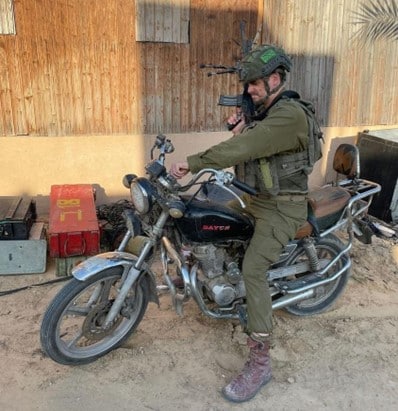
Overview
- Negotiations over a new hostage deal: During the week the heads of intelligence services from Israel, the US, Egypt, and Qatar met in Paris to continue negotiations on a hostage deal that would include a 4-month ceasefire. There were indications of progress, but Hamas’ terms are not acceptable for
- hostage release negotiations. He demanded the release of Marwan Barghouti and other prominent non-Hamas terrorists who have broad followers among the Palestinian public and are seen as potential future Palestinian political leaders with the goal expanding Hamas’ future political support. He also demanded that the IDF withdraw from the Gaza Strip, lift the blockade end the fighting.
- There have been reports that US Secretary of State Antony Blinken has instructed officials to consider an American recognition of a Palestinian State; exerting pressure on other countries to recognize a Palestinian State and refusing to utilize its veto to block the UN Security Council from potentially admitting Palestine as a full UN member state. The report was downplayed by the State Department’s spokesperson.
- New York Times columnist Thomas Friedman, a reported Biden Administration ‘whisperer’ published an Op-ed laying out the principles of Biden’s new Middle East Doctrine.
- Ahead of the escalating tensions in the region and the American involvement in the attacks against Iranian proxies, Secretary Blinken is set to visit the region for the fifth time since October 7th and is scheduled to visit Israel, the Palestinian Authority, Qatar, Egypt and Saudi Arabia.
- Judea and Samaria counterterrorism: The IDF along with aligned special forces conducted an operation in a Jenin hospital which killed 3 terrorists who were actively planning an attack. The operation was executed with special forces disguised as hospital staff.
- An attack by an Iraqi militia on a US base in Jordan near the Syrian border killed 3 American soldiers. This is the first time that there have been American casualties in the nearly 160 attacks by pro-Iranian militias on US bases. The US conducted a series of retaliatory airstrikes in Iraq and Syria. The response was measured and made sure not to attack on Iranian soil. American officials have reiterated their desire to avoid an escalation with Iran.
- The US and the UK conducted a series of attacks against Houthi targets. They hit 36 targets in 13 sites across north Yemen. This attack occurred after the US intercepted 8 UAVs from the Aden Port and attacked 2 UAVs before they were launched.
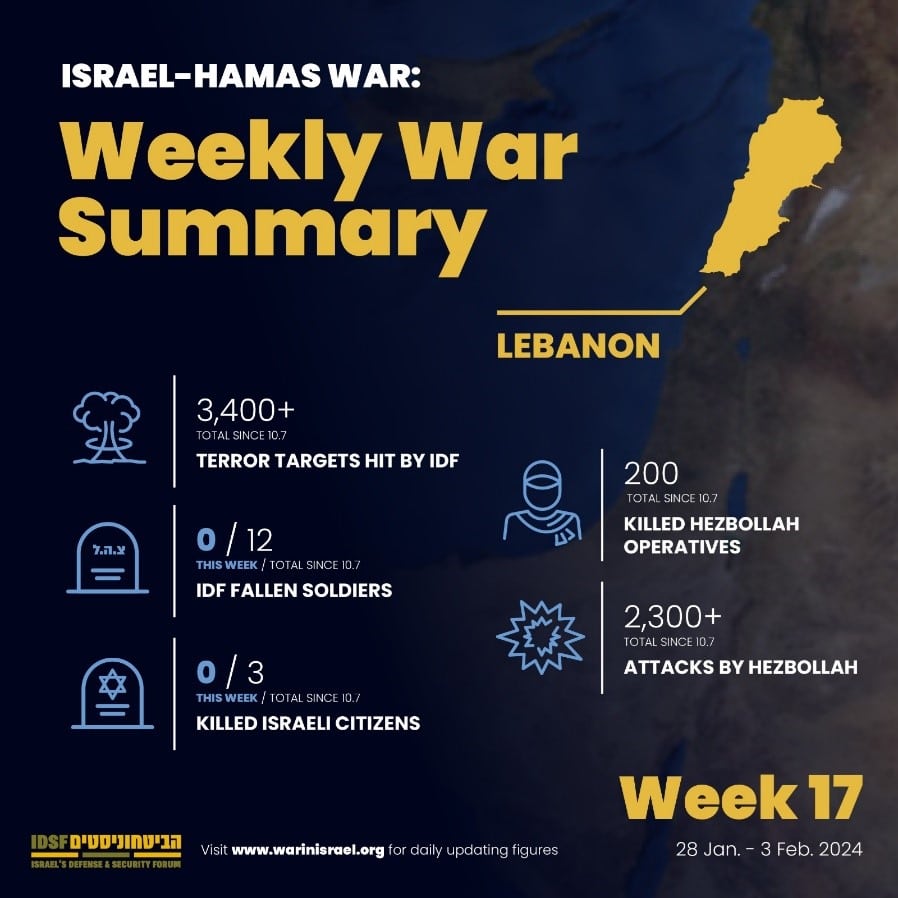
International
- Terrorism in Europe: An attempted attack was thwarted near the Israeli embassy in Stokholm. A hand grenade was found near the Embassy. This comes after the Mossad and Shin Bet uncovered the identities of Hamas operatives in several European countries. It was reported that Hamas intended to target Israelis in Sweden and encourage terrorist attacks across the continent by collaborating with local criminal organizations.
- Sweden announced that it will freeze its funding of UNRWA following similar announcements by the EU, France, US, UK Germany, Canada, and others.
The Biden Administration
While the Biden Administration continues to express for Israel in its war against Hamas, there appears to be signs that the support is beginning to wane. The Biden Administration is pressuring Israel to accept the establishment of a Palestinian state. This comes as Biden is struggling togain support in his own Democratic Party where his policies in the Middle East are very unpopular, particularly among young Democratic voters who are generally supportive of the creation of a Palestinian state. There have been reports that Secretary Blinken has instructed officials to consider an American recognition of a Palestinian State; exerting pressure on other countries to recognize a Palestinian State and refusing to utilize its veto to block the UN Security Council from admitting Palestine as a full UN member state. These reports were downplayed by the State Department’s spokesperson.
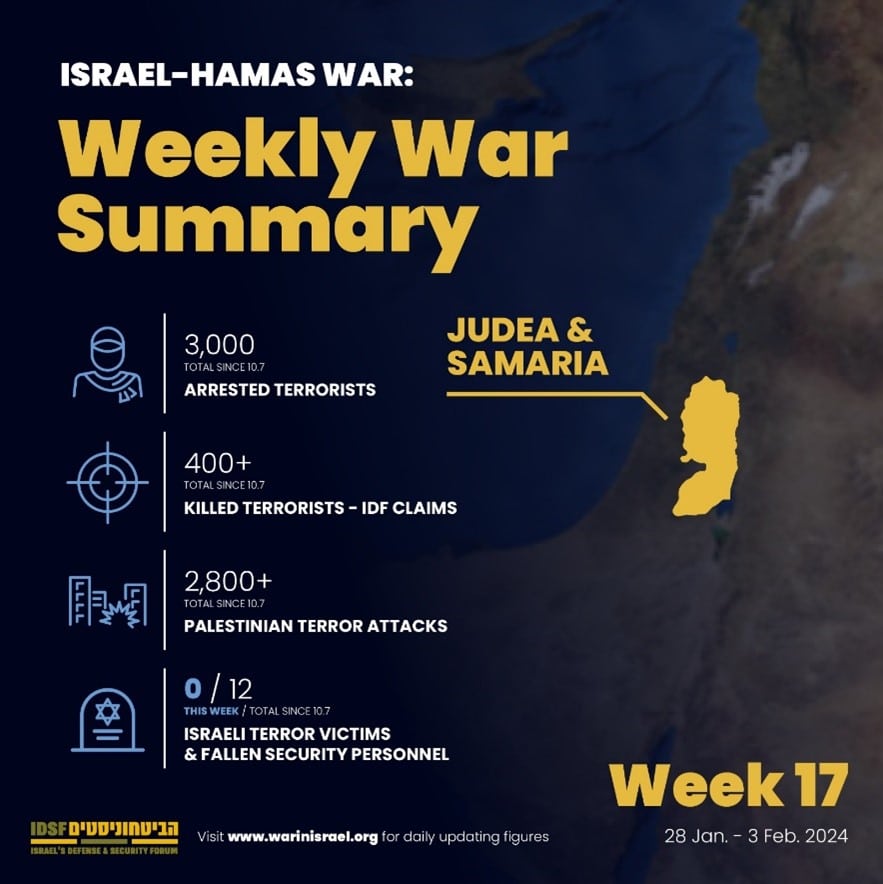
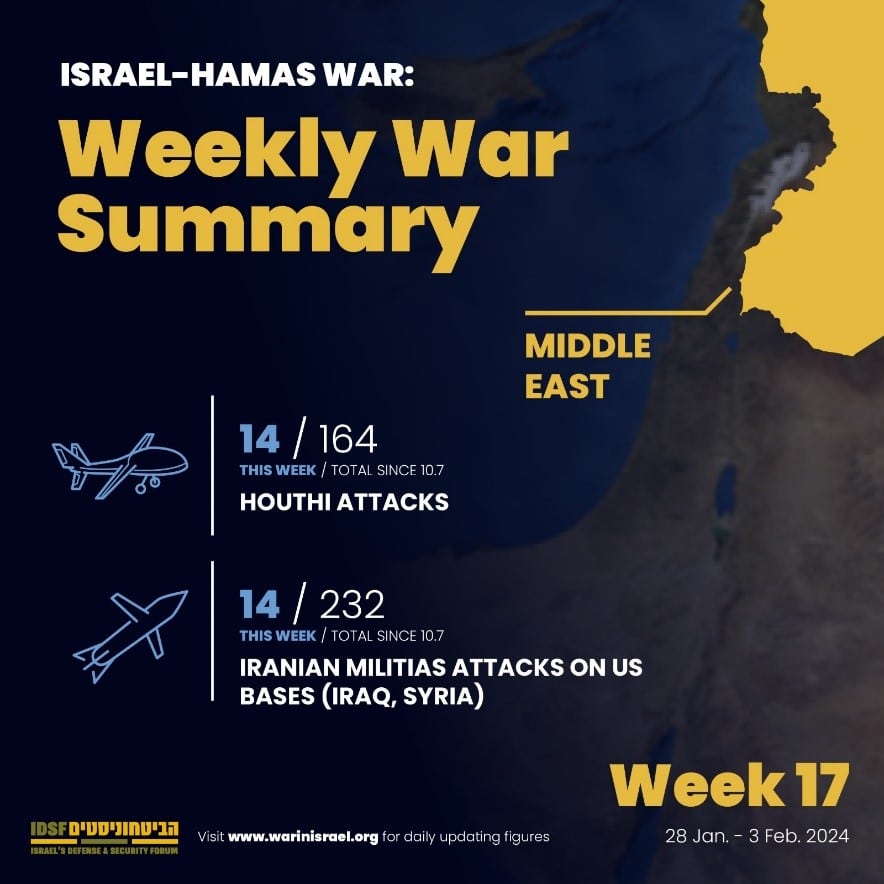
- New York Times columnist Thomas Friedman, a reported Biden Administration ‘whisperer’ published an Op-ed laying out the principles of Biden’s new Middle East Doctrine. The doctrine is based on two principles- enhanced confrontation with Iran and its aggressions while at the same time recognition of a Palestinian State. Biden and other officials have hinted of their intention to create a demilitarized Palestinian State along agreed upon parameters. This would come into being only once Palestinians had developed a set of defined, credible institutions and security capabilities to ensure that this state was viable and that it could never threaten Israel. Biden administration officials have been consulting experts inside and outside the U.S. government about different forms this recognition of Palestinian statehood might take.
- The final leg of the doctrine includes an extensive Saudi-American-Israeli alliance that would culminate with normalization of relations between Israel and Saudi Arabia conditioned upon an Israeli consent to allow a new “reformed” Palestinian Authority that would govern the new Palestinian State.
- President Biden continued to put more pressure on Israel by issuing an Executive Order that puts economic sanctions on four Israelis that the US accuses of ’settler violence’ who allegedly attacked Palestinians in Judea and Samaria. This comes after Secretary of State Anthony Blinken imposed visa bans on several dozen Israeli settlers believed to be involved in the alleged attacks.
- They include David Chai Chasdai, who the U.S. says initiated and led a riot in a Palestinian village, Einan Tanjil, who is accused of assaulting Palestinian famers, Shalom Zicherman, who the U.S. alleges assaulted Israeli activists in the Judea and Samaria, and Yinon Levi, who the State Department says has repeatedly attacked several communities in Judea and Samaria. “Israel must do more to stop violence against civilians in the West Bank and hold accountable those responsible for it,” Blinken said. The EO does not actually require acts of violence but can be used to target and apply sanctions to anyone the White House accuses of undermining peace and security.
- This extraordinary measure taken by the White House where it states that “extreme settler violence… constitutes a serious threat to the peace, …[and] undermine the foreign policy objectives of the United States…” implies Israeli law enforcement is not addressing the limited cases of violence and that Israeli violence is a more significant threat to peace than Hamas, PIJ and the other terrorists. It should also be noted that no such ban was imposed on over 5,000 Palestinians who attack Israelis every year, according to ISA data, and that the leaders of the Palestinian Authority that implement Pay-to-Slay could be targeted by this EO but were not specifically addressed. Ahead of the escalating tensions in the region and the American involvement in the attacks against Iranian proxies, Secretary Blinken is set to visit the region for the fifth time since October 7th and is scheduled to visit Israel, the Palestinian Authority, Qatar, Egypt, and Saudi Arabia.
- Israeli Minister for Strategic Affairs Ron Dermer visited Washington and met White House National Security Adviser Jake Sullivan and other senior Biden administration officials for talks on the war in Gaza and Israel’s plans for the day after the fighting ends
- There were reports indicating that the US is considering slowing down weapon shipments to Israel to pressure Israel to limit civilian casualties in Gaza. John Kirby, NSC spokesperson denied the report and said the US is committed to supporting Israel and its security while maintaining international humanitarian law and the protection of civilians.
The Day After in Gaza
- On Sunday, 11 Ministers out of 15 coalition Members of Knesset participated in a conference calling for the reestablishment of Jewish residential communities in the Gaza Strip “Gush Katif” including calls to displace Gazan Palestinians. The US issued a condemnation of the conference. A statement issued by a National Security Council spokesperson, John Kirby said the US is “troubled” by the gathering, particularly calls for the mass displacement of Gaza’s Palestinian population. The UK foreign office has issued a statement that it was “alarmed” by the gathering. France also issued a condemnation. Minister Gallant promised his American counterparts that he would not allow for civilian settlements in Gaza after the war is over.
- Muhammad Bin Abed Al Rahman, the Qatari Prime Minister and Minister of Foreign Affairs met Secretary Blinken in Washington and discussed a long-term solution for Gaza to be implemented after the war. He also met with Jake Sullivan, the National Security Advisor, and other top American officials. They discussed the need to reach a deal to release the hostages and increase humanitarian aid to Gaza.
Gaza Strip
Diplomatic
- Secretary Blinken is set to arrive to in the region in the coming week in an attempt to negotiate a prolonged ceasefire that will bring an end to the war with a hostage deal. Israeli Prime Minister Benjamin Netanyahu reiterated his red lines that could not be crossed for an agreement which would include Hamas’s reported demands of the release of thousands of terrorists and allowing Hamas to retain control in Gaza. During the week the heads of intelligence services from Israel, the US, Egypt, and Qatar met in Paris to continue negotiations on a hostage deal that would include a 4-month ceasefire. There were indications of progress, but Hamas’ terms are not acceptable for Israel.
- Israeli Shin Bet security agency director Ronen Bar visited Cairo and met with his Egyptian counterpart, Abbas Kamel, amid tensions between Israel and Egypt regarding the war and the future control of the strategic Philadelphi Corridor.
- Qatari Prime Minister Mohammed bin Abdulrahman al-Thani said he is hopeful regarding a hostage deal after passing the proposal on to Hamas.
- The framework for the deal would reportedly include 3 phases of ceasefires that would include the release of hostages in each phase, although this depiction does not necessarily reflect the ongoing negotiations in the room.
- According to an Axios report, senior national security officials from Saudi Arabia, Jordan, Egypt and the Palestinian Authority secretly met in Riyadh 10 days ago to coordinate plans for the day after the war in Gaza that would include the governing of Gaza by a revitalized Palestinian Authority.
- Saudi Arabia’s national security adviser said at the meeting that the kingdom is still interested in moving forward with normalization with Israel in return for practical and irrevocable steps by Israel that would create a path towards a Palestinian state, even if such a state will not be established immediately.
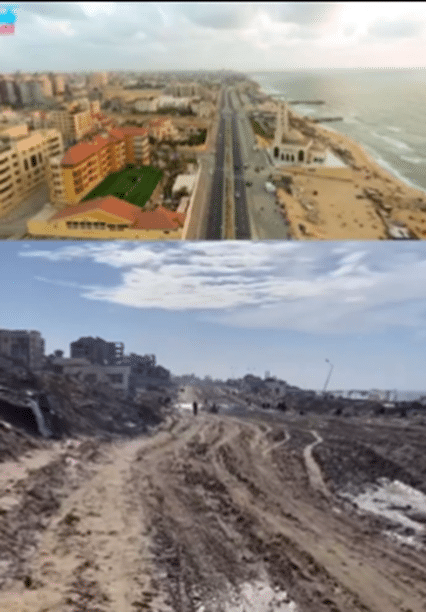
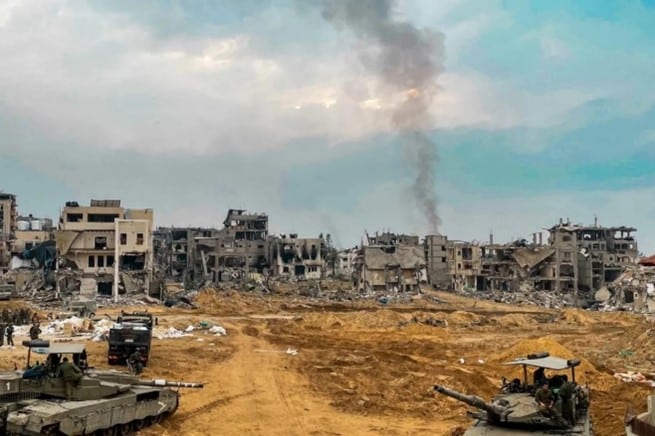
- There appears to be divergence between the positions of the Hamas leadership abroad led by Ismail Haniyeh and in Gaza led by Yahya Sinwar. Haniyeh has made tougher demands during these negotiations insisting on the release of Barghouti and other non-Hamas terrorists who have become significant Palestinian symbols and enjoy popular support in Gaza in order to lock in future political support from them. He also demanded that the IDF withdraw from the Gaza Strip, lift the blockade and end the fighting.
- Meanwhile, members of the US House of Representatives have called on President Biden to pressure Qatar to use its leverage with Hamas to increase efforts to release the remaining hostages. The lawmakers’ letter includes an apparent threat of sanctions on Qatar if the country doesn’t step up its efforts to secure the release of hostages. In a strongly worded letter, Representatives have said they are watching Qatar closely and threatened legislative measures against Qatar.
Operational
According to Israeli officials, 17 of the 24 Hamas battalions have been destroyed. However, the northern and central Gaza regions contain many pockets of resistance. In the north, some of the broken Hamas battalions in the north are regrouping with reports of Hamas policemen roaming the streets and trying to assert control. The civilian arm of Hamas is still functioning in these areas and have yet to be dismantled and replaced by the IDF. The IDF’s efforts are focused on Khan Younis (in the south) and it is also increasing its offensive in the north and the central part of Gaza. There are still Gaza civilians who are evacuating to the south. Hamas is trying to stop the civilians from leaving the north and called upon them to dodge calls from Israeli security services and ignore leaflets that the IDF distributed.
- Hamas shot 10 rockets to Gush Dan region near Tel Aviv from southern Gaza, right before the IDF found the rocket launchers. Hamas wanted to use the rockets before they are seized and destroyed.
- In Khan Younis IDF jets attacked long range missile launchers.
- The IDF 5th Brigade left Gaza for training and pause in the fighting.
- The IDF found a factory for rocket production under the Nuseirat Refugee Camp as well as a Hamas “bank” that contained cash in the amount of hundreds of thousands of NIS.
- Minister Gallant disclosed in a security briefing, that the command structure of the Khan Younis brigade has been dismantled. He also said that 10,000 Hamas terrorists were killed along with another 10,000 that were injured.
- An armored brigade left Gaza leaving only 5 ` fighting in Khan Younis. The 646th paratroopers brigade is expected to move to Khan Younis from central Gaza.
- In Bani Suheila, the IDF found a tunnel shaft with an elevator that was used in the 2021 war against Israel.
- There are new details coming out on Israel’s use of water pumps to flood the tunnels. The capabilities Israel attained are very new and advanced and will take part in the IDF’s underground maneuvers. For the first time, the IDF also fought inside the tunnels with new techniques and methods.
- IDF troops found weapons, including explosives, in Khan Younis that were hidden in UNWRA bags.
- The IDF apprehended 10 PIJ terrorists after a fight in a school that was used as a hiding place by the terrorists.
- The Shin Bet uncovered a network used by Hamas to trick unsuspecting Israeli Jews to inadvertently transfer packages. This was exposed after the IDF found intelligence in a Hamas office that included documents that laid out the methods used by Hamas. Among its methods, Hamas used fictitious Facebook profiles to lure people into its network.
Lebanon
Operational
- According to IDF data, since the beginning of the war the IDF attacked 150 bands of terrorists and killed 200.Additionally, 3,400 Hezbollah targets were hit since the beginning of the war including, operations room, weapons silos and missile launching batteries.
- Approximately, 20% (130 out of 650) of the houses in the Israeli town of Metula were harmed by Hezbollah attacks.
- A Lebanese military center in Dahria, Lebanon was hit by an Israeli airstrike.
- The Amal movement announced that 2 of its operatives were killed in an Israeli attack in Southern Lebanon.
- IDF aircrafts attacked a number of Hezbollah military sites including observation posts, a group of terrorists, sites from which launches were conducted into Israeli territory.
- The IDF spokesperson, Rear Admiral Daniel Hagari, gave a comprehensive briefing on the Northern front and explained that the IDF is working in 3 vectors- defense, attack and preparation for a full-scale conflict. The IDF has 3 divisions along the border consisting of reserve troops that include tens of thousands of soldiers including infantry, commando, artillery, armored corps, logistics, intelligence, naval and aerial defense.
Diplomatic
- Amos Hochstein, Biden’s envoy to Lebanon is expected to visit the region next week.
Judea and Samaria
- According to IDF data, since the beginning of the war, the IDF has detained 2950 terror operatives, 1,300 of which are affiliated with Hamas.
- The IDF along with aligned special forces conducted an operation in a Jenin hospital which killed 3 terrorists who were actively planning an attack and seeking refuge inside the premises of the hospital. The operation was executed with special forces disguised as hospital staff. The terrorists were reportedly eliminated by guns equipped with silencers. The incident was irregularly filmed by hospital security cameras, that captured Israeli soldiers and operatives dressed up as family members, women, and innocent patients.
- In Haifa, near a navy base, a terrorist rammed over a civilian with his car and injured him with an axe before he was neutralized.
- An Israeli Arab is suspected of attempting to burn down a police station and a sensitive factory in Haifa in an act of sympathy with Hamas. The suspect, Razi Hamada (20, Shfaram) was arrested after being documented throwing a Molotov cocktail and plotting to burn a nearby site.
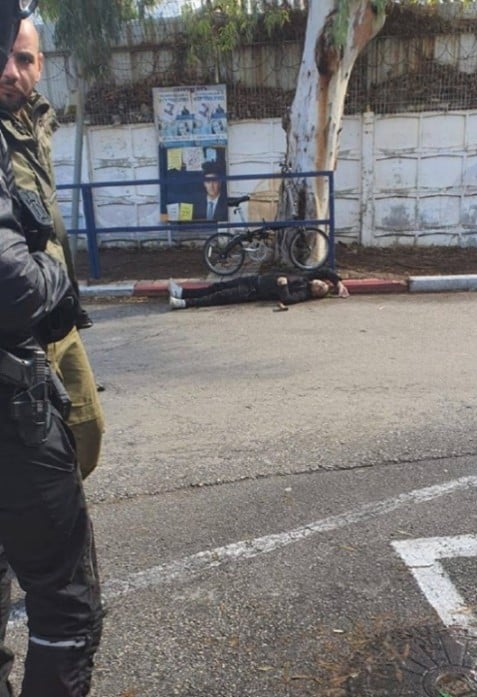
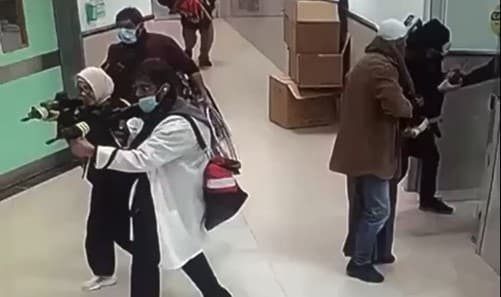
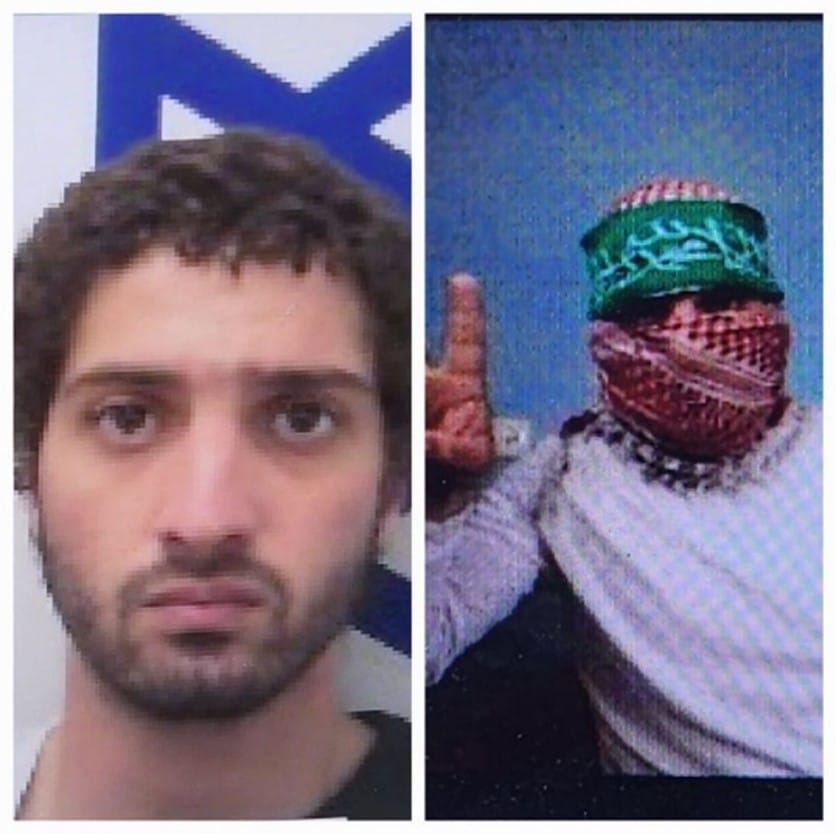
Iraq and Syria
The main event of the week was the attack by an attack by an Iraqi militia on a US base in Jordan near the Syrian border that killed 3 American soldiers. This is the first time that there have been American casualties in the nearly 160 attacks by pro-Iranian militias on US bases. The US conducted a series of retaliatory airstrikes in Iraq and Syria. The response was measured and made sure not to attack on Iranian soil. American officials have reiterated their desire to avoid an escalation with Iran. Over the weekend the US expanded its attacks hinting that there will be more attacks in the future with statement by Biden and Secretary of Defense Austin that the attacks are only the “start of our response.”
- So far, the US conducted 85 attacks in 7 different sites in Iraq and Syria using planes that flew all the way from Texas.
CENTCOM said the strikes hit targets linked to Iran’s Islamic Revolutionary Guards Corps (IRGC) Quds Force and affiliated militia groups in Iraq and Syria.
- The facilities that were struck included command and control operations, centers, intelligence centers, rockets, and missiles, and unmanned aired vehicle storages, and logistics and munition supply chain facilities of militia groups and their IRGC sponsors who facilitated attacks against U.S. and Coalition forces.
- Iraqi militants have said that the attacks occurred on unmanned sites, and they did not harm their military capabilities.
- John Kirby said the U.S. notified the Iraqi government ahead of the strikes but didn’t have any contact with the Iranian government. The Iraqi government denied the coordination with the US, although this denial is a necessity given the Iraqi government’s reliance on Pro-Iranian militias. To show the Iraqi people their disapproval of the American action, Iraq summoned the chargé d’affaires of the U.S. Embassy in Baghdad to deliver a letter of protest. This is a symbolic gesture with no practical consequence indicating that the Iraqi government understands the need for security coordination with the US to stop the advance of ISIS and Al Qaeda in Iraq.
- The Iraqi government said 16 people were killed and 25 were wounded in the U.S. strikes. It added the international coalition against ISIS “deviated” from its task and mandate in a way that endangers the security of Iraq.
- The U.K.-based Syrian Observatory for Human Rights said 23 members of pro-Iranian militias were killed in Syria.
- Russia’s Foreign Ministry said Friday’s U.S. strikes have created chaos in the Middle East and called for an urgent meeting of the UN Security Council.
- The Islamic Resistance in Iraq continued its pattern of unverified reports and claimed that it attacked Haifa using a drone.
- The Secretary General of the Al Nujba organization in Iraq said that attacks against American targets will continue until the US withdraws from Iraq and Israel withdraws from Gaza.
- Fearing American and Israeli attacks, IRGC top commanders have been evacuated from eastern Syria, according to reports.
- Khataib Hezbollah announced that it will halt the attacks against American bases to prevent embarrassment to the Iraqi government. This was after Secretary of Defense Austin blamed the group for the attack on the American base in Jordan.
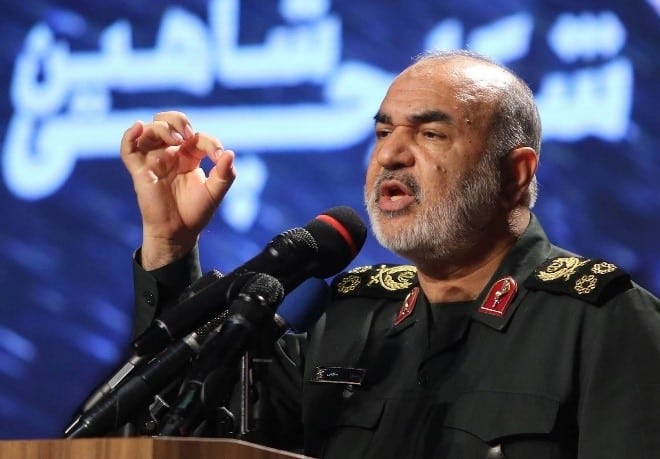
Yemen
- The US and the UK conducted a series of attacks against Houthi targets. They hit 36 targets in 13 sites across north Yemen. These attacks occurred after the US intercepted 8 UAVs from the Aden Port and attacked 2 UAVs before they were launched.
- A cruise missile landed one mile from an American destroyer before it was intercepted, the closest distance to an American war ship.
- The USS Carney used the SM-6 missile that costs $4.3 million to intercept a ballistic missile in the Aden Port.
- The Yemeni armed forces attacked a British ship that was headed to Israel.
- The Israeli air defense system “Arrow” intercepted a missile in the Red Sea area.
Iran
- The US and the UK sanctioned several Iranian officials who have been associated with assassination attempts against journalists and dissidents on US and UK soil as well as other countries. These Iranian officials are part of the IRGC’s Unit 840 that is responsible for the creation of terrorist infrastructure outside of Iran as well as other Western targets.
- Iran’s UN ambassador denied any responsibility and culpability in the attacks against the US and claimed that Iran does not have command of the groups that carried out the attacks.
- Using an interlocutor, Iran warned the US that if the US would attack it in retaliation for the attack that killed 3 Americans, Iran would attack American assets. Its UN ambassador said that Iran would respond to any attack the harms Iranian interests or civilians in Iran or outside of it.
- IRGC commander Hussein Salami said in a conference in Tehran that Israel would be defeated, and Iran is not afraid of a war with the US although it does not seek it.
- The Iranian Foreign Minister spoke with his Saudi counterpart on regional developments and plans for Gaza.